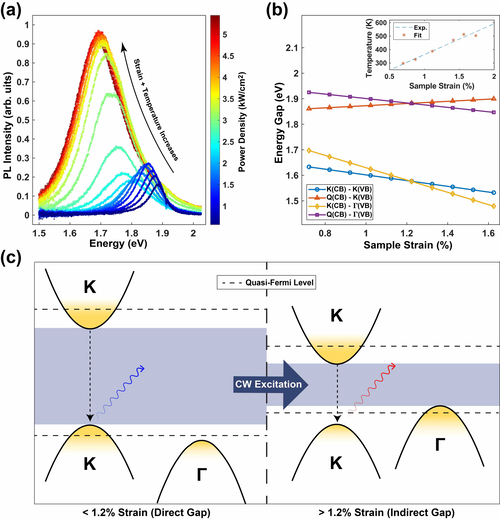Abstract
2D transition metal dichalcogenides (TMDCs) exhibit an electron-hole liquid phase transition at unusually high temperatures. Because these materials are atomically thin, optical excitation leads to material expansion. As a result, during the EHL phase transition the electronic band structure evolves due to both material thermal expansion and renormalization of the bands under high excitation densities. Specifically, these effects lead to indirect gap electronic band structure with a valence band maximum located at the Γ valley. In this work we developed a methodology for analyzing the spectral evolution of the photoluminescence of suspended 1L-MoS2 during the EHL phase transition by using Fermi liquid theory. The resulting analysis reveals valley-specific carrier densities, radiative recombination efficiencies, and intraband carrier relaxation kinetics in 1L-MoS2. More broadly, the results outline a methodology for predicting critical EHL parameters, shedding light onto the EHL phase transition in 2D TDMCs.
